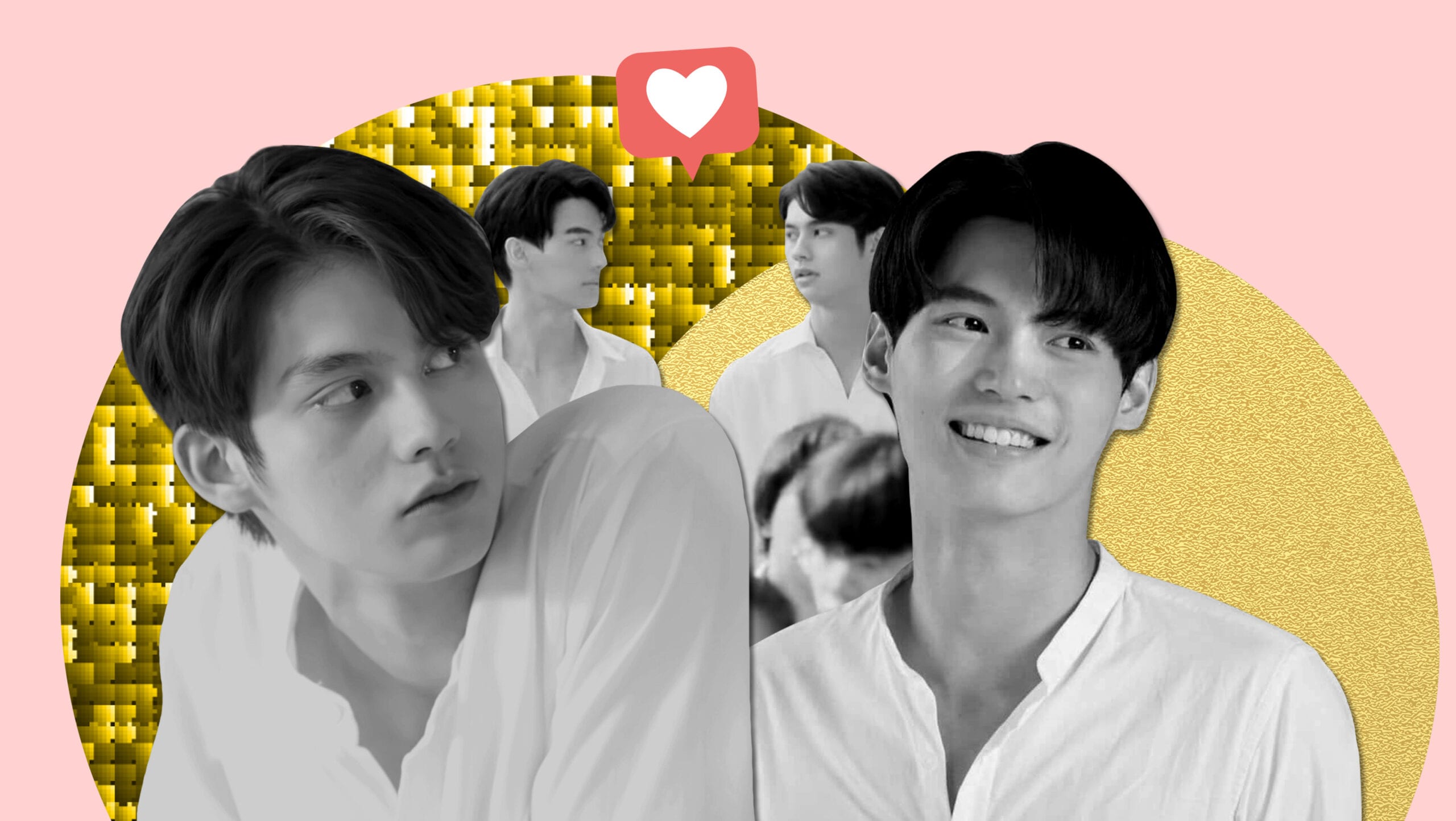My crush texted me and I smiled. We had been exchanging messages for the past two hours and I could feel the butterflies in my stomach performing their version of a Cirque du Soleil show. I read and re-read his messages, decoding each and every one of them like a detective looking for a sign. Was “take care” code for “be safe because I don’t want to lose you?” Was that smiley face a tease? Was he spending hours texting me because he likes me?
I typed a response and we chatted into the wee hours of the night. When I said goodnight, he promised to text me when he woke up—and he did. This cycle continued for weeks, my thoughts consumed by the image of a 17-year-old boy who was handsome, smart and kind. Someone who was busy but still managed to talk to me every day. It felt like a movie and my 16-year-old self was the star—until a text message burst my bubble of delusion.
“Hey, do you know this girl who went to your high school?,” he texted me one day. Not really. But I needed to know what he was talking about. I also wanted to prolong the conversation.
“Yes, what’s up?” I responded.
“Well, I’m dating her!”
I was dumbfounded. Should I offer my congratulations? Was this a prank? I thought he was supposed to like me. I shook off the creeping feeling that made me want to cry and forced a response: “Nice, that’s great.”
I don’t remember what he said next—or if he ever responded—but I do remember that shortly after he told me about his girlfriend his messages came less and less frequently, until we eventually lost touch. The boy I once fantasized about holding hands and taking long walks with disappeared. It turned out he never really liked me. But, unbeknownst to him, he took an important place in my memories, something labelled: The very first man who broke my heart.
I’ve been thinking about my first heartbreak lately. It’s been triggered by physical distancing due to the COVID-19 pandemic and my newfound pandemic-coping obsession: GMMTV’s 2gether: The Series.
The show is a Boys Love (BL) drama, a genre that features homoerotic relationships between male characters and is popular in Japan, Thailand and other parts of Asia. 2gether premiered in February and features young Thai actor Vachirawit Chivaaree (Sarawat) and newcomer Metawin Opas-iamkajorn (Tine).
Like other BL series, including SOTUS and 2 Moons: The Series, 2gether’s story takes place at a university. Tine, a handsome, girl-obsessed student, is stalked by Green (played by actor Korawit Boonsri), a gay schoolmate he doesn’t like. Tine tries telling Green he doesn’t have feelings for him—he even pretends he has a girlfriend—but Green is persistent. Defeated and hopeless, Tine’s friends think that if he pretends to have a hot boyfriend instead, Green will leave him alone. In comes Sarawat, a mysterious guitarist with a tough exterior. Tine approaches Sarawat and asks him if he could pretend to be his boyfriend. Sarawat agrees. 2gether’s premise is simple, and in each episode, viewers watch as Sarawat and Tine’s relationship changes from “pretend” to real couple.
The simplicity of the plot adds to the show’s charm, which has captured the attention of Thai and international viewers alike. This is evident on GMMTV’s YouTube page, where new episodes (with English subtitles) are uploaded weekly after they air, each one of them raking in millions of views within hours. The show has also become a consistent trending topic on Twitter worldwide, spurring memes and various fan groups.
2gether is packed with cheesy lines and antics. Its stars are attractive and their chemistry is electric. But I think the show’s success lies in how it effectively appeals to viewers’ nostalgia. The series take place in a familiar setting—a university campus—which makes the characters and their stories more relatable and somewhat reachable (they could literally be someone you know). But 2gether also reminds its viewers of the what-ifs they had as teenagers.
For queer people watching, Sarawat and Tine’s story unfolds in a world where queerness is normal and queer people are allowed to say what they want and flirt with who they like. I played out scenarios in a similar idyllic place in my mind thousands of times when I was younger, an idyllic place I wish existed.
But Boys Love dramas are not without flaws. The genre has been criticized for queerbaiting and exoticizing queerness. Its main audience is mainly straight women and, more often than not, the stories revolve around heteronormative narratives that still tell straight love stories (only this time, straight people are substituted with queer bodies).
In a series of tweets, Michael Francis Andrada, pop culture analyst and professor at the University of the Philippines, said, “In case you’re wondering why Thai BL is such a hit: It’s a capitalist reification and idealization of gay experience. It uses the ‘gay gaze’ to salivate over good-looking and sexy actors portraying gay or gender-bending roles. It makes viewers live vicariously through fantasy.”
Moreover, BL series’ have been called out for portraying stories that do not reflect the real challenges that queer people experience in their daily lives, and for casting straight actors to portray gay characters—as is the case with 2gether. And the show conforms to narrow views of queerness: Some fans have pointed that Sarawat and Tine are one of the straightest-looking BL drama couples.
Female characters are also left on the sidelines. They’re often reduced to one-dimensional nuisances—their main purpose is either to make lead characters jealous or make a main character realize he’s still straight after all. And the female characters’ bodies are often subjected, quite literally, to heavy scrutiny by the male gaze. We see this in Episode 7 of 2gether, when Tine and his friends use binoculars to look at women athletes, focusing on their chests and faces. When criticized for the portrayal of female characters on the series, the show’s director, Weerachit Thongjila, tweeted an apology and promised to do better.
Watching the show, it’s hard not to notice the use of tropes and stereotypes that have existed in Asian societies for centuries. For instance, 2gether normalizes and perpetuates colourism—the idea that paler skin is more beautiful. We see this in Episode 8 when Tine’s friend repeatedly says that Tine likes “fair-skinned girls.” The show also persistently advertises skin whitening products during commercial breaks which, at one point, even make it on the show. In Episode 9, Sarawat left Tine an antioxidant drink (which is also used as a skin whitening supplement) to “stay alert” while learning to play the guitar.
Of course, the criticisms are founded and valid. Where BL dramas succeeds, though, is in the way they depict stories of sunny queerness devoid of tragedy and melodrama. Inside their worlds, queer people not only thrive but are allowed to be unabashedly themselves while everyone around them celebrates their romance. In 2gether, Sarawat and Tine’s schoolmates are seen genuinely rooting for their relationship to develop into something deeper.
BL dramas also provide a glimpse of Thai culture. In China, 2gether has become so popular on the social media site Douban that it has improved some Chinese people’s understanding of Thai culture and way of life. In an interview with the Global Times, an unnamed Chinese BL fan said, “[The Thai] TV series do let me get a step closer to the country.”
I have been watching 2gether while physically distancing in my Toronto apartment. As a gay Asian man living in Canada, the show’s impact is visceral. Aside from allowing me to live vicariously through Sarawat and Tine, the show provides representation and validation that people like me exist in forms that are not fetishized and sexualized. It’s this refreshing portrait of Asian queerness that reminds me that, somewhere in the world—away from the scrutiny of the white mainstream media—our bodies and identities are desirable and worthy of love.
But ultimately, watching 2gether reminds me of all the little notes I wrote, the prayers I said and the imagined scenarios I played in my head when I was 16. As I watch the main characters share headphones or witness Sarawat looking at Tine like he’s the only person who matters, I know my younger self is not only seen, but his love is also validated.
It’s been more than a decade since I last heard from my teenage crush. I can’t even remember what drew me to him, but watching 2gether reminds me of the feeling I got whenever I saw his name on my phone years ago. Each week, as I watch Sarawat and Tine’s love story unfold, a familiar warm fuzzy feeling fills my heart. Each time Sarawat looks at Tine like he’s the best thing that’s happened to him, I get a glimpse of a past where everything was fine and possibilities were endless. In 2gether, Sarawat and Tine’s story serves as an homage to the often undermined “young love”: The kind of love that’s dismissed for its immaturity and impermanence. But it’s also the kind of love that leaves memories you will never, ever, forget.


 Why you can trust Xtra
Why you can trust Xtra


